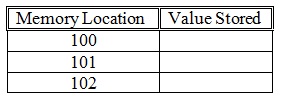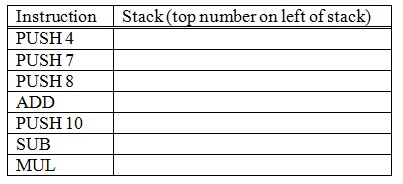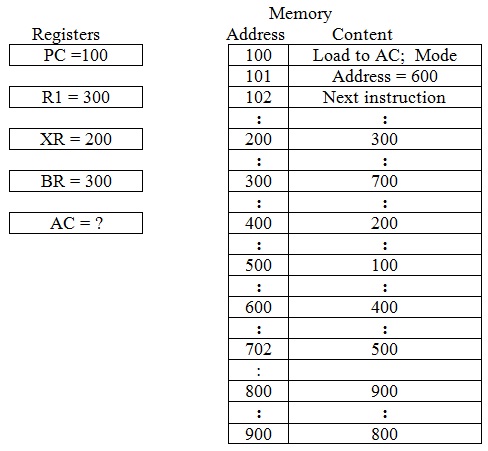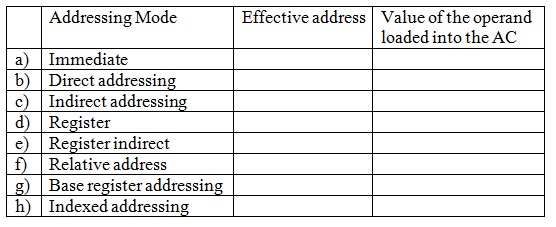Question 1: Show how the value ASCII “MIRIAM” is stored in memory in Big Endian format beginning at location 100 hexadecimal. Suppose that each memory location stored two ASCII characters.

Question 2: A given microprocessor has words of 1 byte. Determine the smallest and largest integer that can be represented in the given representations?
a) Unsigned.
b) Sign- magnitude.
c) Ones complement.
d) Twos complement.
e) Unsigned packed decimal.
f) Signed packet decimal.
Question 3: Compare zero-, one, two-, and three- address machines by writing the programs to compute:
X = (A + B x C)/(D – E x F)
for each of four machines. Don’t modify the values of A, B, C, D, E or F. If essential, use a temporary location T to store the intermediate results.
The instructions accessible for use are as shown below:

Question 4: Convert the given formulas from reverse Polish to infix:
a) AB +C + D x
b) ABCDE + x x /
Question 5: Convert the given formulas from infix to reverse Polish:
a) A + B + C + D + F
b) (A x B) + (C x D) + E
Question 6: Suppose a stack-oriented processor which includes the stack operations PUSH and POP. Arithmetic operations automatically comprise the top one or two stack elements.
Starting with an empty stack, what stack elements remain after the given instructions are executed?

Question 7: Consider a processor in which a two-word instruction is stored at location 100 with its address field at location 101 as illustrated below.

The first word of the instruction specifies the operation code and mode; the second word specifies the address part.
The values of the program counter (PC register), a general register (R1), the index register (XR), the base register (BR) and certain addresses in memory are as illustrated below.
Compute the effective address and the value which is loaded into the AC for the given addressing modes:
